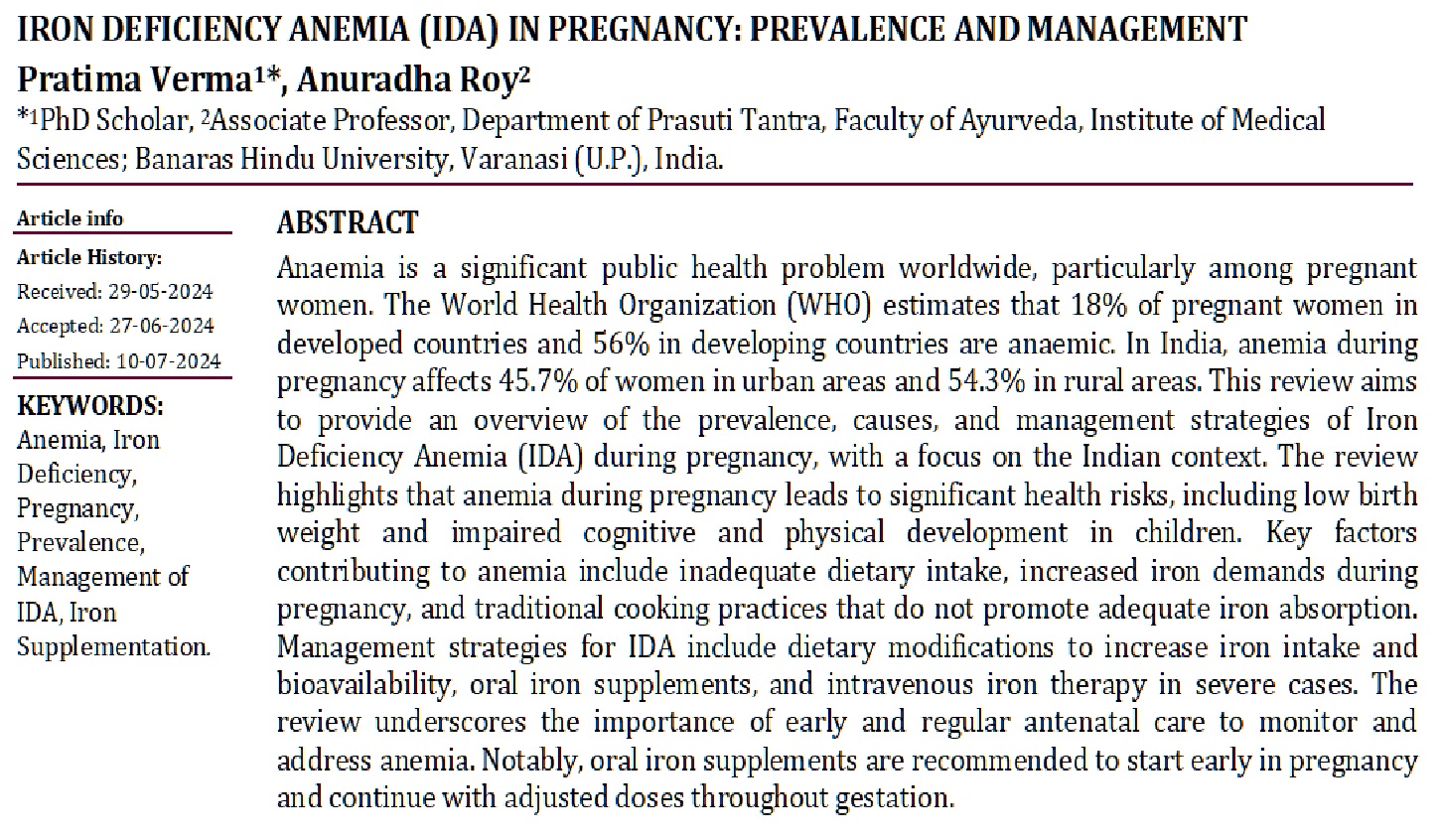Iron Deficiency Anemia (IDA) in Pregnancy : Prevalence and Management
DOI:
https://doi.org/10.47070/ayushdhara.v11i3.1614Keywords:
Anemia, Iron Deficiency, Pregnancy, Prevalence, Management of IDA, Iron Supplementation.Abstract
Abstract: - Anemia is a significant public health problem worldwide, particularly among pregnant women. The World Health Organization (WHO) estimates that 18% of pregnant women in developed countries and 56% in developing countries are anemic. In India, anemia during pregnancy affects 45.7% of women in urban areas and 54.3% in rural areas. This review aims to provide an overview of the prevalence, causes, and management strategies of Iron Deficiency Anemia (IDA) during pregnancy, with a focus on the Indian context. The review highlights that anemia during pregnancy leads to significant health risks, including low birth weight and impaired cognitive and physical development in children. Key factors contributing to anemia include inadequate dietary intake, increased iron demands during pregnancy, and traditional cooking practices that do not promote adequate iron absorption. Management strategies for IDA include dietary modifications to increase iron intake and bioavailability, oral iron supplements, and intravenous iron therapy in severe cases. The review underscores the importance of early and regular antenatal care to monitor and address anemia. Notably, oral iron supplements are recommended to start early in pregnancy and continue with adjusted doses throughout gestation.
Downloads

Downloads
Published
Issue
Section
License
Copyright (c) 2024 AYUSHDHARA

This work is licensed under a Creative Commons Attribution-NonCommercial-ShareAlike 4.0 International License.


